Clean. Natural. Spring.
THE FINEST HOT SPRINGS IN
BRITISH COLUMBIA
Our water is some of the cleanest natural spring water around, and does not receive any treatment other than filtration and what is required to ensure there is no risk to the health of our patrons before entering the pools. Our hot pool completely recycling its water every 30 minutes, and our larger warm pool recycling every 4 hours. Have you ever wondered what minerals are in our water? Lots of them!
Calcium (56.7 mg/L)
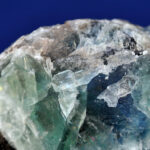
Calcium is a soft gray alkaline earth metal, and is the fifth-most-abundant element by mass in the Earth’s crust. Calcium is essential for living organisms, in particular in cell physiology. As a major material used in mineralization of bone, teeth and shells, calcium is the most abundant metal by mass in many animals.
Chloride (1.82 mg/L)
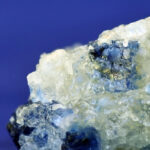
The chloride ion is an essential electrolyte located in all body fluids responsible for maintaining acid/base balance, transmitting nerve impulses and regulating fluid in and out of cells. The concentration of chloride in the blood is regulated by the kidneys.
Fluoride (2.60 mg/L)
Fluoride ions occur on earth in several minerals, particularly fluorite, but are only present in trace quantities in water. Fluoride-containing compounds, such as sodium fluoride, are used in topical fluoride therapy for preventing tooth decay. They are used for water fluoridation and in many products associated with oral hygiene.
Magnesium (0.304 mg/L)
Magnesium is a chemical element with the symbol Mg. It is an alkaline earth metal and the eighth-most-abundant element in the Earth’s crust, and ninth in the known universe as a whole. Magnesium is a vital component of a healthy human diet; Taken in the proper amount, magnesium plays a role in preventing both stroke and heart attack.
Potassium (4.49 mg/L)
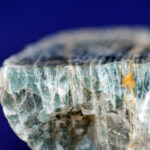
Potassium is a chemical element with symbol K. Elemental potassium is a soft silvery-white alkali metal that is very reactive with water. Potassium is the eighth or ninth most common element by mass in the human body. Potassium is an essential macro mineral in human nutrition; important for maintaining fluid and electrolyte balance in the body.
Phosphorus (0.003 mg/L)
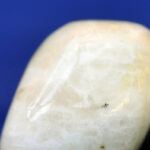
Phosphorus is a nonmetallic chemical element with symbol P. Phosphorus is not found free in nature, but it is widely distributed in many minerals. Phosphorus in the form of phosphate is required for all known forms of life; living cells use phosphate to transport cellular energy, and it is also the main structural component of all cellular membranes.
Silica (62.5 mg/L)

Silicon dioxide, also known as silica, is a chemical compound that is most commonly found in nature as quartz. Silica is used primarily in the production of glass for windows, drinking glasses, beverage bottles, and many other uses. Silica is a common additive in the production of foods, where it is used primarily as a flow agent in powdered foods, or to absorb water. Silica is also used as a wine, beer, and juice fining agent.
Sodium (77.1 mg/L)
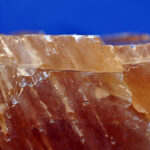
Sodium is a chemical element with the symbol Na. It is a soft, silver-white, highly reactive metal and is a member of the alkali metals. Sodium is the sixth most abundant element in the Earth’s crust. Sodium is an essential nutrient that regulates blood volume, blood pressure, osmotic equilibrium, and pH.
Sulphates (324 mg/L)
Sulfates occur widely in everyday life, and are a key component in many personal hygiene and spa products, including therapeutic epsom salts, numerous soaps and shampoos, and even toothpaste. Sulphates come in many forms, with a wide range of additional uses including battery components and antibacterial products.

 We are switching to a new booking system. CALL 250-265-4528 to book your site.Sorry for any inconvenience.
We are switching to a new booking system. CALL 250-265-4528 to book your site.Sorry for any inconvenience.


